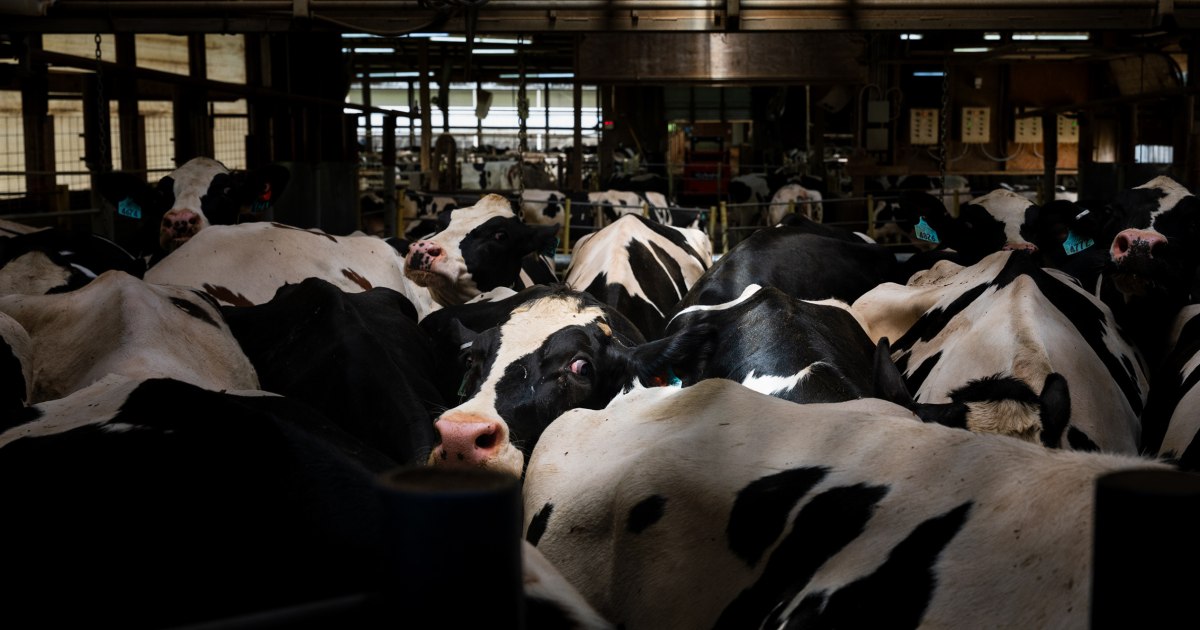
The U.S. government is giving drugmaker Moderna $176 million to develop an mRNA vaccine against the bird flu amid the ongoing outbreak in dairy cows across the country.
The vaccine is in the early stages of development and would not be available until at least next year, Dawn O’Connell, assistant secretary for preparedness and response at the Department of Health and Human Services, said during a call with reporters Tuesday.
“The timeline may change, but we anticipate starting phase three trials in 2025,” O’Connell said. While the vaccine would target H5N1, the mRNA technology would allow manufacturers to pivot quickly if another new flu strain emerges.
Since the outbreak was first detected in March, three people — all dairy workers — have tested positive for the virus. All had relatively mild cases and have since recovered.
There is no evidence yet that this strain of the bird flu spreads easily from person to person. But the concern is that the longer the virus circulates among mammals, it could mutate into a form that does.
“The risk in the general population right now remains low, and CDC’s assessment of that has not changed,” Dr. Nirav Shah, the principal deputy director at the Center for Disease Control and Prevention, said on the call.
So far, 137 herds have been affected in a dozen states: Colorado, Idaho, Iowa, Kansas, Michigan, Minnesota, New Mexico, North Carolina, Ohio, South Dakota, Texas and Wyoming.
Herds in Colorado, Idaho, Michigan and Texas have been hit hardest, with more than 20 cases each.
Moderna’s vaccine would be separate from the 4.8 million doses of bird flu vaccines already stockpiled by the government. O’Connell said she expects those shots, which use traditional vaccine technology, to be available starting in the middle of July. The Food and Drug Administration would have to authorize either of the vaccines before they’re used in the general public.
Shah noted that it’s too soon to recommend the shots for any group, even dairy workers.
Since the outbreak began in March, more than 780 people exposed to sick cows have been monitored, and 53 were tested for H5N1.
Caitlin Rivers, an epidemiologist at the Johns Hopkins Center for Health Security, said the efforts to shore up multiple types of bird flu vaccine are important, but added that the government’s response so far hasn’t been “fast enough or aggressive enough.”
“Although the virus does not currently pose a direct pandemic threat to humans, it’s concerning,” Rivers said. “We have not seen influenza in agricultural animals like this before, and so I think that alone should really push us to be more forward-leaning.”
Rivers called for health officials to be transparent, for example, about when they would move forward with rolling out bird flu vaccines to the general public.
Also on Tuesday, health officials reiterated that the commercial milk supply is safe. Last week, the FDA and Department of Agriculture released a study showing that the most common milk pasteurization method — heating it to 161°F for 15 seconds — neutralized H5N1 virus particles that had been added to milk samples.
“In each of the nine repeated experiments, the virus was completely inactivated,” said Don Prater, acting director of the Center for Food Safety and Applied Nutrition at the FDA.






